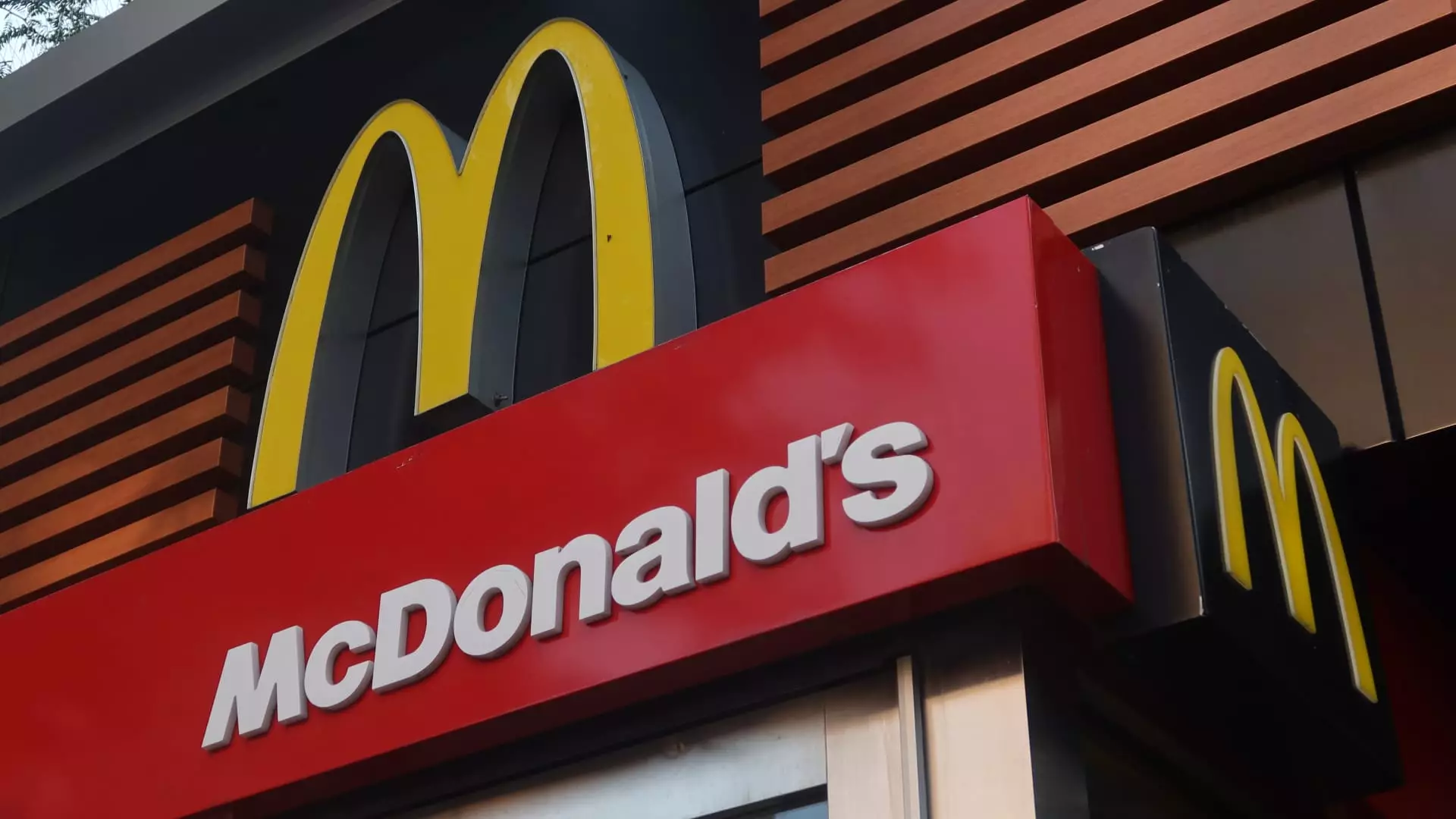McDonald’s recent earnings report paints a picture of incremental growth and fleeting optimism, but a closer look reveals a deeper crisis lurking beneath the surface. While the company touts record-breaking revenues and a resilient stock price, these numbers mask an ongoing struggle: the declining purchasing power of America’s most loyal customers—low-income consumers. The company’s slight uptick in same-store sales and the buzz around promotional campaigns provide a false sense of stability, yet they overlook the persistent economic realities threatening the very foundation of McDonald’s success: an increasingly fragile, price-sensitive demographic.
Historically, McDonald’s thrived because it served as an affordable escape for those on the margins. Today, that demographic is shrinking—not because they no longer crave quick, cheap food, but because their financial struggles are deepening. The promotional tactics, such as the $5 meal deal and returning Snack Wraps at a promotional price, are band-aids on a bleeding wound. These efforts temporarily sway consumer traffic, but they fail to address the root issue: a widening income gap and a declining sense of economic security among low-income Americans.
The Myth of a United Consumer Base
CEO Chris Kempczinski’s comments underscore a crucial point: McDonald’s recognizes the bifurcation of its consumer landscape. On one hand, there are Americans for whom eating out is a consumer choice; on the other, those for whom it is a necessity. What this reveals is not just a strategic challenge but an ethical one. McDonald’s, in its pursuit of growth, continues to pivot towards keeping its innovative promotions and international markets buoyant, but it risks ignoring the socio-economic fissures that threaten long-term sustainability.
Efforts to make core menu items more affordable—beyond the existing promotions—are commendable but insufficient. They risk becoming an endless cycle of superficial fixes rather than tackling the systemic causes of consumer hardship. The question remains: how can McDonald’s genuinely adapt to an era where the concept of “affordable” is constantly eroding for its most loyal, low-income clientele? Simply rolling out new promotional deals, or even launching menu items like the McCrispy Chicken Strips, does little to address broader economic concerns.
International Success Masks Domestic Challenges
While McDonald’s international operations report solid growth—particularly in the UK, Canada, and Australia—the situation on U.S. soil is more precarious. The company admits that U.S. consumer traffic continues to decline, highlighting a sobering truth: Americans are tightening their belts faster and more decisively than their global counterparts. The apparent international strength serves as a distraction from this stark reality, giving shareholders and media outlets a false sense of hope.
This disparity underscores a systemic flaw within the core business model—dependence on American consumers who are increasingly squeezed financially. The international markets, with their comparatively lower prices and cultural differences, offer a more sustainable growth avenue, but that should be alarming rather than reassuring. It signals a shift in the company’s long-term viability: its health is increasingly intertwined with global markets more willing or able to absorb higher prices or accept changes, unlike the American low-income demographic that keeps the company’s bottom line afloat.
Beyond the Surface: An Unseen Crisis in Food Justice
McDonald’s focusing on promotional campaigns and new menu items as solutions is symptomatic of a larger societal issue. While the company touts improved consumer value perceptions and international growth, it does little to confront or mitigate the economic disparities within its most consistent customer base. This approach borders on superficial virtue-signaling rather than genuine social responsibility.
As the economy continues to challenge the financial stability of millions, fast-food giants like McDonald’s have an ethical obligation to reevaluate their strategies. If their goal is to serve and sustain the low-income consumer, then a more profound commitment to affordability, fair wages, and economic justice must go beyond promotional pricing tactics. Because, ultimately, a business model built on temporary discounts and international growth cannot replace systemic change needed to protect the most vulnerable consumers from economic precarity.
The recent earnings figures, while impressive on paper, should serve as a wake-up call rather than a cause for complacency. McDonald’s success is increasingly precarious, contingent on consumer segments that are rapidly diminishing in purchasing power. The question is not whether promotional campaigns will continue to boost sales temporarily, but whether the company’s core mission can evolve to genuinely prioritize economic fairness over short-term profitability.

